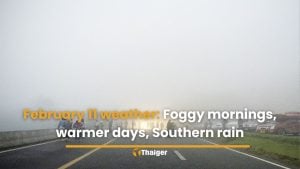The rising trend of sleep tourism
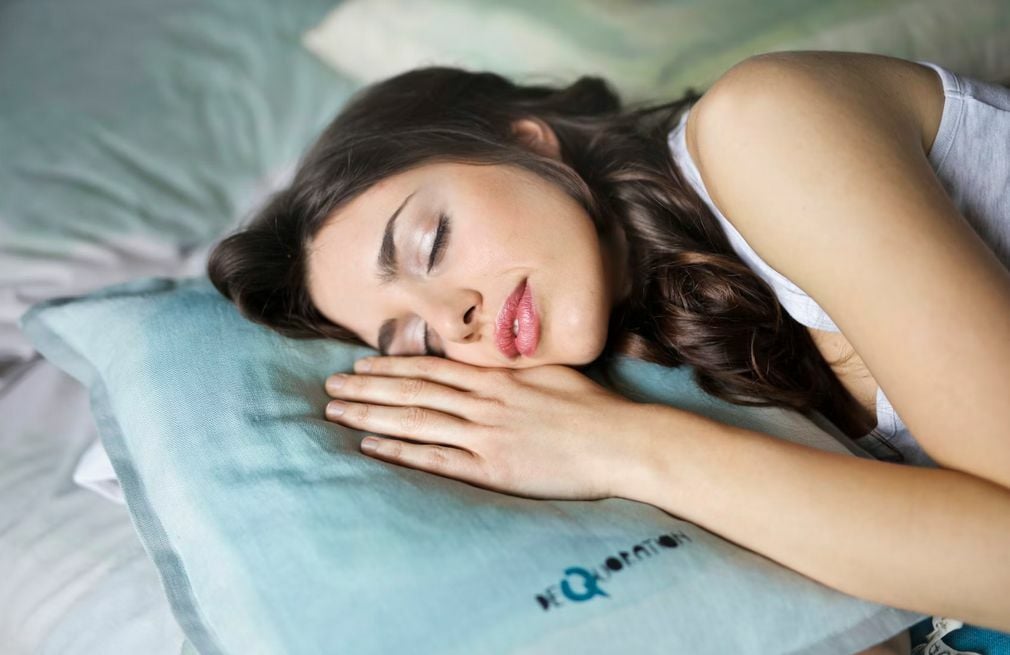
In a world that’s constantly on the go, it’s no wonder people are now seeking holidays that prioritise rest and rejuvenation. Enter sleep tourism, a rising trend where the primary goal is to recharge both body and mind. This isn’t just about catching up on sleep; it’s about immersing oneself in an environment designed to enhance the quality of rest.
What is sleep tourism?
Sleep tourism focuses on travel designed to promote rest and rejuvenation. It’s different from typical vacations, which often involve hectic schedules and sightseeing. Instead, travellers opt for destinations and activities that prioritise sleep quality.
The concept includes environments conducive to rest. Hotels and accommodations might feature soundproof rooms, premium bedding, and smart technology to ensure an optimal sleep experience. Many establishments offer sleep-oriented services like personalised pillow menus, blackout curtains, and noise-cancelling systems.
Sleep tourism aims to recharge travellers mentally and physically. Activities often include spa treatments, meditation, and yoga sessions, all designed to improve relaxation and sleep quality. For some, it extends to dietary plans that support better sleep, emphasising the importance of a holistic approach. They seek to escape daily stress and focus on improving their sleep. The industry is adapting quickly by introducing innovative solutions to meet the needs of this emerging market.
Everything a sleep hotel has to offer

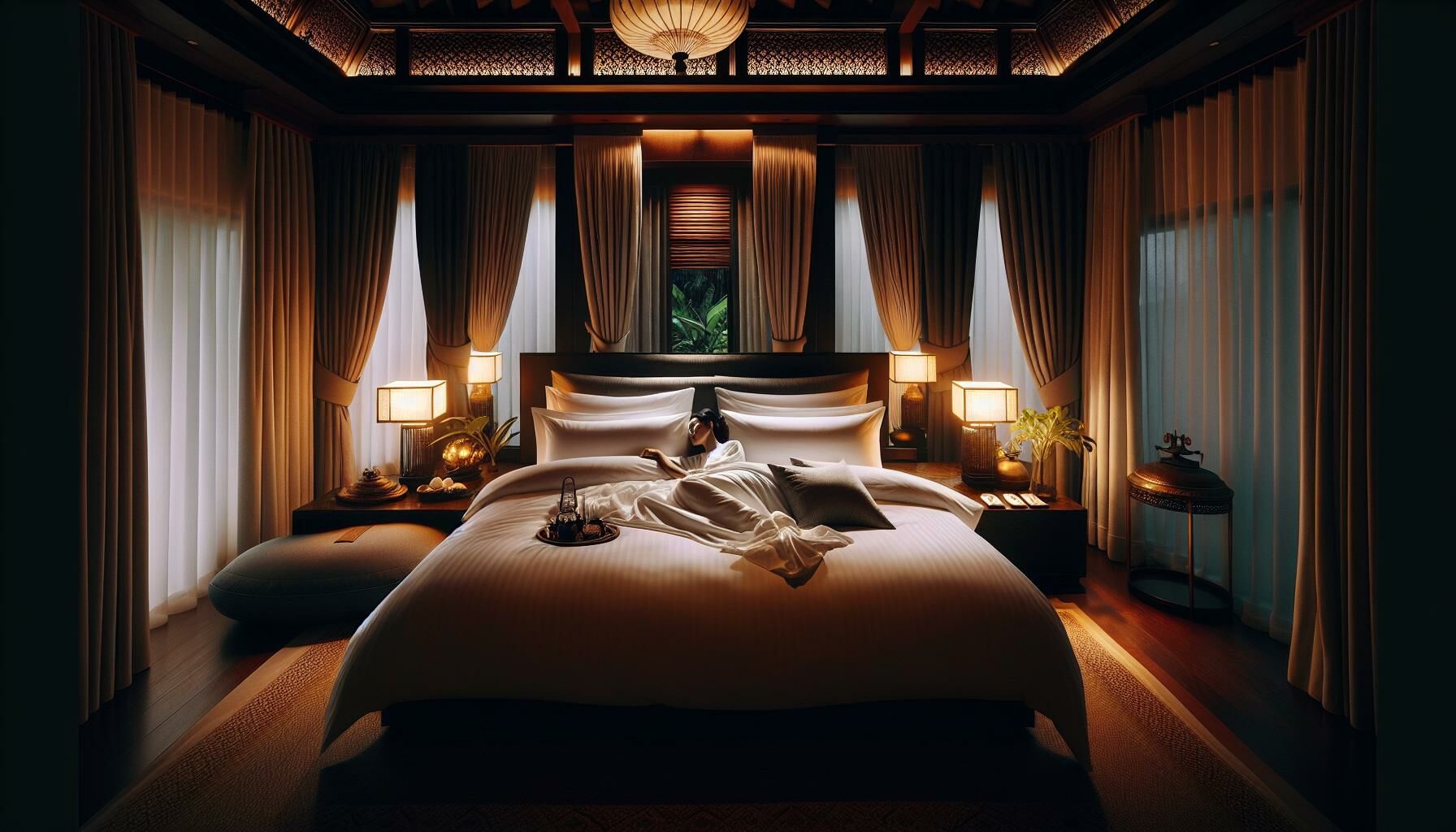
Sleep hotels specialise in enhancing rest and rejuvenation. Many offer personalised amenities such as customisable mattresses, pillows, and duvets. They aim to provide the ideal sleep environment.
In certain hotels, guests can access a Sleep TV channel. This channel plays relaxing music designed to help with sleep. It’s an option for those seeking a quick way to unwind.
Unique features like pillow menus are also common. They offer various types of pillows suited to individual sleep preferences. Weighted blankets are available to aid with insomnia.
Many sleep-focused hotels incorporate wellness rituals. For example, essential oils and Tibetan singing bowls create a calming atmosphere. Such rituals aim to improve sleep quality naturally.
Advanced sleep hotels adopt holistic approaches. Facilities may include daily fitness programmes and unlimited drinking water. These elements contribute to overall wellness and better sleep.
Adding to the holistic experience, some hotels introduce hypnotherapy sessions. A professional may guide guests through sleep-inducing meditation. This method can be particularly effective for those with severe sleep issues.
Overall, sleep hotels offer a comprehensive approach. Every service and amenity is geared towards improving rest. This makes sleep tourism an appealing option for health-conscious travellers.
Benefits
Increased energy levels
Restorative sleep directly influences energy levels. Many report waking up revitalised after sleep-focused retreats. Customised pillows, mattresses, and calming environments contribute to this effect. As energy levels rise, so does productivity and mood.
Improved sleep habits
Consistency in sleep patterns is crucial. Sleep tourism encourages the adoption of better sleep habits. Guests learn the importance of a sleep-friendly environment and routines. This education often extends beyond the holiday, impacting daily lives positively. Guests might integrate new habits like reducing screen time before bed.
Better overall well-being
Quality sleep impacts physical, emotional, and mental health. Those engaging in sleep tourism often experience reduced stress and anxiety. Wellness treatments at these specialised hotels further support well-being. Routine exposure to these practices can lead to long-term health improvements. These benefits underline the essential role of sleep in overall wellness.
The rise of sleep tourism in Thailand
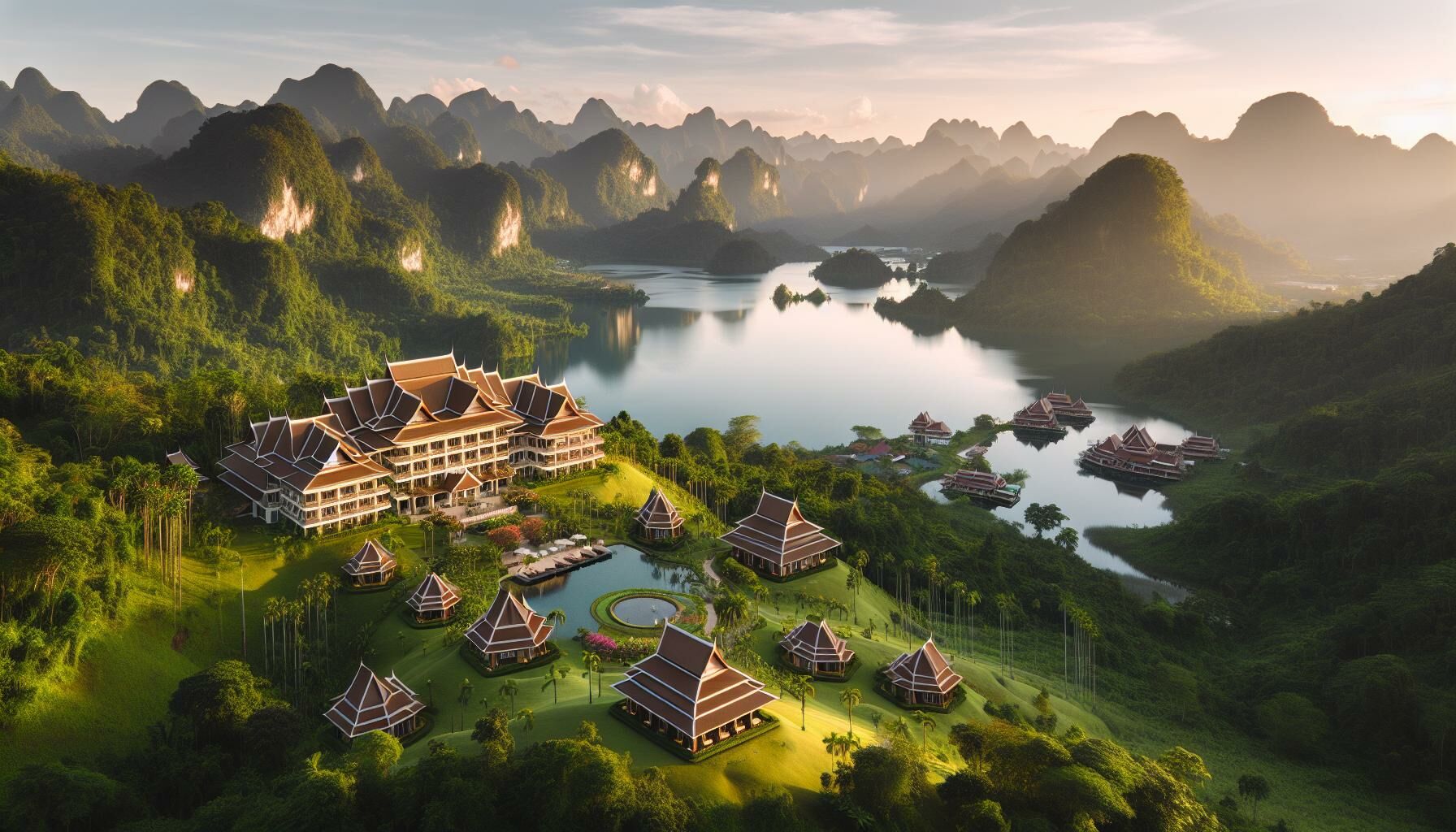
Effect from Covid-19
The Covid-19 pandemic shifted global travel trends. Many sought rest over traditional activities. As work-from-home blurred lines between personal and professional lives, sleep quality declined. Research indicates that 40% of 2,500 adults had poor sleep quality since Covid-19’s onset. Adolescents suffered too, with students in over 26 countries sleeping less than six hours a night.
Thailand, known for its serene landscapes, quickly embraced sleep tourism. Hotels began offering holistic sleep packages. These included calming environments, aromatherapy sessions, and guided sleep rituals. Popular tourist spots in Thailand adapted to this trend. They provided surroundings conducive to deep rest.
International travellers turned to sleep hotels in Thailand. They preferred personalised sleep experiences over regular tours. The country’s natural beauty added to the appeal. Remote resorts in Thailand’s mountains offered quiet and peaceful retreats.
Such targeted services attracted sleep-deprived individuals worldwide. By catering to this growing need, Thailand positioned itself as a top destination for sleep tourism.
Customised sleep environments
Hotels in Thailand are now creating bespoke sleep environments. These accommodations focus on individual needs, ensuring optimal rest. Amenities include adjustable beds, blackout curtains, and soundproof rooms.
Additionally, advanced sleep technology is integrated. Some establishments offer AI-powered sleep trainers. These guide guests through sleep cycles, promoting better rest. In-room amenities such as sleep-inducing teas and calming white noise machines are also popular.
Moreover, fitness and wellness centres in these hotels contribute. Programmes include yoga, meditation, and even hypnotherapy. These services ensure comprehensive well-being for tourists.
Thailand’s sleep tourism industry continues to grow. With such customised experiences, the country remains a leading destination. Through innovation and focus on sleep health, it attracts an increasing number of health-conscious travellers.
5 tips for sleeping
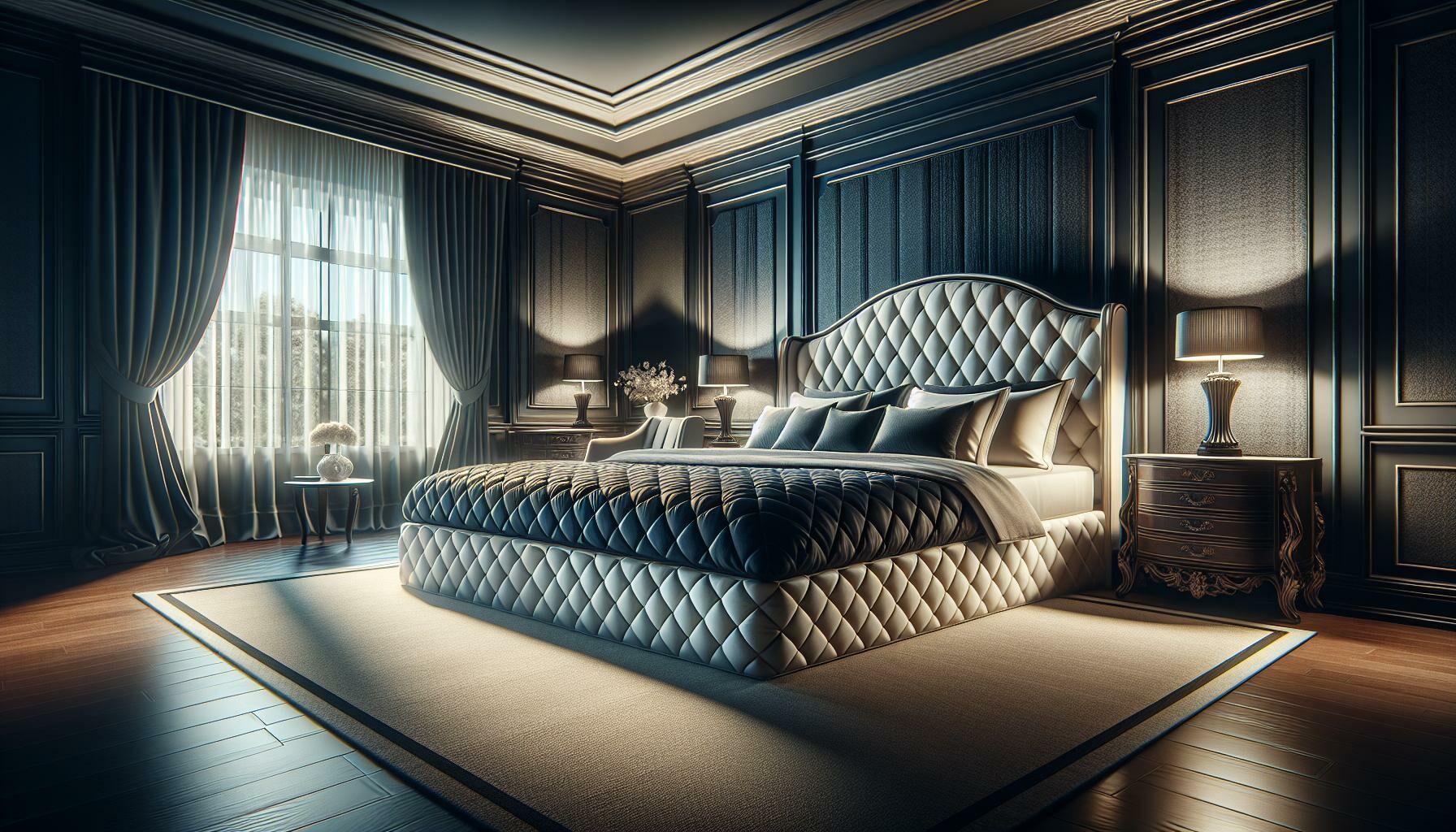
Consider a mattress topper
A mattress topper enhances the comfort of your existing bed. Applying a topper can provide necessary cushioning for worn-out or overly firm mattresses. They come in various materials such as memory foam, latex and wool, catering to different comfort needs. For those exploring sleep tourism but staying home, a topper can mimic the plush feel of luxury hotel beds.
Upgrade your bedding
Quality bedding impacts sleep quality significantly. Invest in high-thread-count sheets, breathable blankets and supportive pillows. Luxury hotels often use Egyptian cotton or linen for a soft, cooling effect. At home, upgrading bedding can create an exquisite sleep environment, enhancing the sense of indulgence found in sleep tourism experiences.
Ensure your pillow fits your sleeping position
A mismatched pillow can cause neck and back pain, disturbing sleep. Side sleepers should opt for firmer pillows to maintain neck alignment. Back sleepers benefit from medium-firm pillows, while stomach sleepers need softer options to prevent strain. Matching your pillow to your sleeping position helps replicate the custom comfort found in top sleep hotels.
Try pillow mist or a sleep mask
Scented pillow mists and sleep masks can enhance sleep quality. Lavender and chamomile sprays promote relaxation, aiding faster sleep onset. Sleep masks block out light, essential for creating a dark, restful environment.
Put up Blackout curtains
Blackout curtains ensure a dark room by blocking external light. They help regulate your body’s internal clock, reducing disturbances from street lights or early sunrises. This simple home upgrade can significantly improve sleep quality.
Sleep tourism continues gaining traction worldwide. The focus on enhancing sleep quality transforms travel experiences. Hotels now integrate advanced sleep technologies and wellness practices. Future trends may include more personalised sleep environments. This shift appeals to health-conscious travellers.
Latest Thailand News
Follow The Thaiger on Google News:








